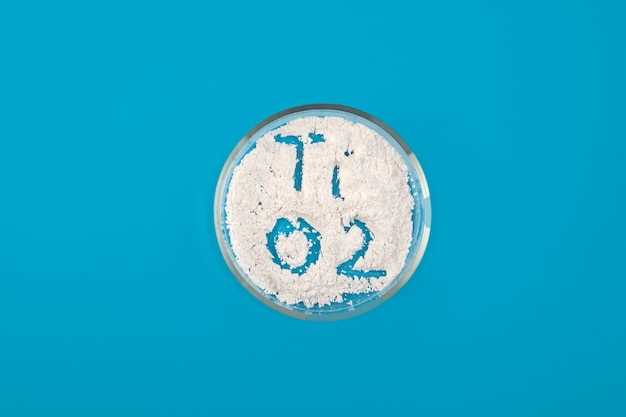
Side effects of Losartan Potassium 25 mg may include dizziness, fatigue, and headache. However, many people experience no side effects at all. This medication is commonly used to treat high blood pressure and can help improve your overall health and well-being.
If you have any concerns about taking Losartan Potassium 25 mg, consult with your healthcare provider to discuss potential side effects and determine if this medication is right for you. Remember, always follow your doctor’s instructions when taking any medication.
Effects of losartan potassium
Losartan potassium is a medication commonly used to treat high blood pressure (hypertension) and certain types of heart disease. It belongs to a class of drugs known as angiotensin II receptor blockers (ARBs).
Some of the positive effects of losartan potassium include:
| 1. Blood pressure control: | Losartan potassium helps to relax blood vessels, which can lower blood pressure and reduce the workload on the heart. |
| 2. Kidney protection: | Losartan potassium can help protect the kidneys in patients with diabetes and high blood pressure by reducing the pressure in the blood vessels within the kidneys. |
| 3. Heart health: | By reducing blood pressure and stress on the heart, losartan potassium can help improve overall heart health and reduce the risk of heart attacks and strokes. |
It is important to follow your healthcare provider’s instructions when taking losartan potassium to ensure you experience the positive effects and avoid any potential side effects.
Common side effects
When taking losartan potassium, some common side effects may occur. These side effects are usually mild and temporary, but it is important to be aware of them:
| Headache | Fatigue |
| Dizziness | Cough |
| Abdominal pain | Back pain |
If you experience any of these side effects and they persist or worsen, contact your healthcare provider. In some cases, adjusting the dosage or switching to a different medication may help alleviate these symptoms.
Allergic reaction risks
Losartan potassium may cause allergic reactions in some individuals. Symptoms of an allergic reaction to losartan potassium may include:
- Hives
- Swelling of the face, lips, tongue, or throat
- Difficulty breathing
- Rash
- Itching
If you experience any of these symptoms after taking losartan potassium, seek immediate medical attention. Allergic reactions to losartan potassium can be serious and require prompt treatment. Inform your healthcare provider about any known allergies before starting losartan potassium.
Allergic reaction risks
Losartan potassium may cause allergic reactions in some individuals. These reactions can range from mild to severe and may include symptoms such as:
- Hives
- Itching
- Rash
If you experience any of these symptoms after taking losartan potassium, it is important to seek medical attention immediately. Allergic reactions can be life-threatening and require prompt treatment. Inform your healthcare provider of any known allergies before starting losartan potassium to reduce the risk of an allergic reaction.
Drug interaction concerns

It is important to be aware of potential drug interactions when taking losartan potassium 25 mg. Certain medications can interact with losartan and may increase the risk of side effects or reduce the effectiveness of the drug. Before starting losartan, inform your healthcare provider about all the medications you are currently taking, including prescription, over-the-counter, and herbal supplements.
Some of the medications that may interact with losartan potassium include:
- Other blood pressure medications
- Diuretics (water pills)
- NSAIDs (nonsteroidal anti-inflammatory drugs)
- Potassium supplements or salt substitutes containing potassium
- Lithium
- Antidiabetic medications
Your healthcare provider may need to adjust your dosage or monitor you more closely if you are taking any of these medications along with losartan. It is essential to follow your healthcare provider’s instructions and report any new symptoms or side effects that may occur while taking losartan in combination with other medications.
Special precautions
When taking losartan potassium, it is important to follow certain precautions to ensure the medication is safe and effective:
| Pregnancy: | Avoid using losartan potassium during pregnancy as it can harm the unborn baby. Inform your doctor immediately if you become pregnant while taking this medication. |
| Renal Impairment: | If you have kidney problems or are on dialysis, discuss with your doctor before starting losartan potassium. Dose adjustments may be necessary. |
| Liver Disease: | Patients with liver disease should exercise caution when using losartan potassium. Close monitoring of liver function may be required. |
| Hypotension: | Losartan potassium can cause low blood pressure, especially when starting the medication or increasing the dose. Take precautions while standing up to prevent dizziness or fainting. |
| Potassium Supplements: | Avoid potassium supplements or salt substitutes containing potassium while taking losartan potassium, as it may lead to high potassium levels in the blood. |
Monitoring and reporting

It is crucial to monitor your blood pressure regularly while taking losartan potassium 25 mg to ensure that it remains within a healthy range. Your healthcare provider may recommend periodic blood pressure checks to assess the effectiveness of the medication.
If you experience any unusual symptoms or side effects while taking losartan potassium, you should report them to your doctor immediately. This includes symptoms such as dizziness, swelling, rapid heartbeat, or difficulty breathing.
Your doctor may also perform regular blood tests to monitor your kidney function and electrolyte levels while taking losartan potassium. It is essential to follow your doctor’s instructions carefully and report any concerns or changes in your health status promptly.
| Monitoring | Reporting |
| Regular blood pressure checks | Unusual symptoms or side effects |
| Periodic blood tests for kidney function and electrolyte levels | Changes in health status |
